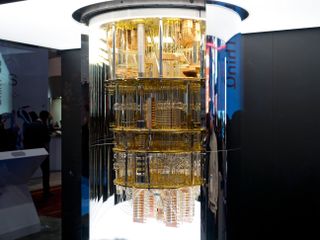Q-CTRL’s new AI toolset allows quantum computers to self-optimize
The toolset runs on Q-CTRL’s flagship BOULDER OPAL software

Q-CTRL has announced a new AI-based toolset to facilitate the unassisted performance optimization of quantum computers.
By and large, quantum algorithms are susceptible to errors, creating a substantial barrier to progress and advancement in quantum computing. Q-CTRL’s new automated closed-loop hardware optimization tool uses custom AI agents to run quantum algorithms, resulting in fewer errors and better overall performance for end-users.
Integrated with Q-CTRL’s flagship BOULDER OPAL software for developers and R&D teams, automated closed-loop hardware optimization is also trained to obtain new experimental data/results from quantum computers while simultaneously running optimizations for algorithms. It can be used as a standalone tool or in tandem with a machine-learner online optimization package (M-LOOP) that manages quantum experiments autonomously.
Users can also use the Q-CTRL Python package to manually send batch requests to experimental apparatus for running multiple tests in quick succession.
Q-CTRL had previously demonstrated its novel quantum technology on an IBM quantum computer, resulting in quantum logic gates for individual qubits (or quantum bits) with up to 10 times better performance than standard logic gates. Q-CTRL’s custom AI agent could also detect new multi-qubit gates autonomously with up to two times lower error-rate.
"Just like software abstraction on conventional computers enables programmers to write algorithms without a need to understand how a transistor works, this tool makes it much easier for researchers to explore the potential of quantum computers," said Michael J. Biercuk, founder and CEO of Q-CTRL.
"Watching a quantum computer tune itself up with this tool and deliver quantum logic with lower errors than that achieved by the best hardware development teams in the world is quite amazing. We believe it will accelerate the development of quantum computer hardware and applications, pushing the industry closer toward delivering real-world business value,” Biercuk added.
Get the ITPro. daily newsletter
Receive our latest news, industry updates, featured resources and more. Sign up today to receive our FREE report on AI cyber crime & security - newly updated for 2024.




